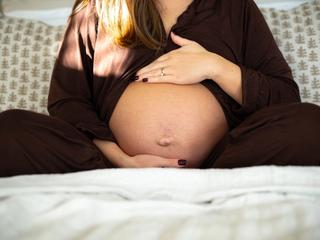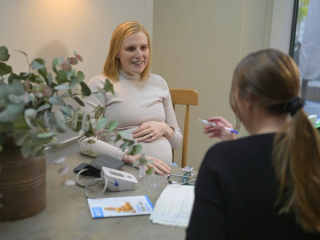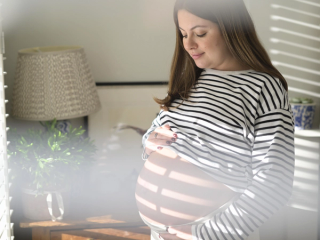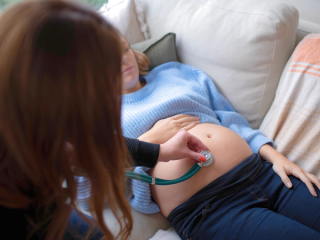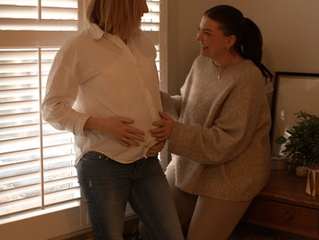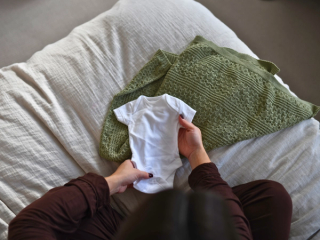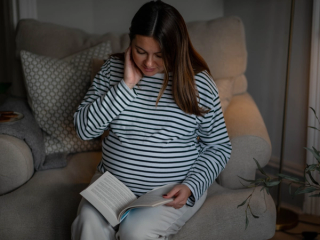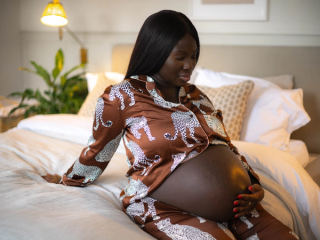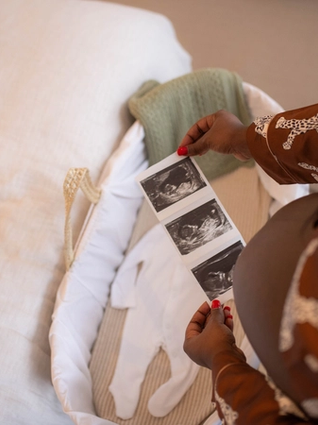
- Home
- Advice And Support
- Pregnancy
- Pregnancy Tips & Support
- Importance Of Baby Movements
Importance of baby movements
Louise, @thehonestmidwife, talks about the importance of baby movement throughout your pregnancy and when you could expect movements by.
After the first few months of pregnancy, that first kick from your baby is a wonderful reminder of the life growing inside. It is an exciting moment for partners, too, to actually be able to feel their baby girl or boy. The timing of the first kick varies in each pregnancy and, if this is your first pregnancy, you may not feel your baby until after 20 weeks. If you haven’t felt movements by 24 weeks, you should contact your maternity unit, who will check baby’s heartbeat.
What does baby movement feel like in early pregnancy?
“Is that butterflies in my tummy?” The first few tell-tale signs that your baby is having a wriggle inside may just be slight feelings of fluttering and you may be left wondering, “Was it?’, “Wasn’t it?. It won’t be long before you will have no doubt that a tiny person is doing a Highland Jig inside you as you start to feel firmer kicks.
Noticing and monitoring baby movements
A healthy baby will move around as they strengthen their muscles in readiness for life on the outside and, although there will be periods of rest, you will soon get used to how your baby moves. It is not necessary for you to count how often you feel your baby move, but you should try to take note of their activity patterns so that if you notice changes to the activity, you can contact your midwife for a check-up.
If you have had a busy day and are just a little unsure, try lying down, on your left-hand side, and spend some time focusing on your baby. You could try having a cold drink and a snack to see if this gets your baby moving. But if you still do not feel movements or are not reassured, call your midwife.
It is really important that you do not give into the temptation to purchase a home Doppler (the machine used to listen to baby’s heartbeat). It takes considerable training and practice to use these machines and there is a real risk of being given false reassurance. When in doubt, speak to your midwife or doctor.
Babies move right up to the end of pregnancy
It is a myth that babies movements reduce towards the end of pregnancy. Although they may be a little cramped, you should still be able to feel them wiggling around in there and it remains just as important to be aware of your baby’s movements until they are in your arms having their first cuddles.
If you are seen and reassured that all is well but you continue to be worried, make another appointment. Never feel you are a nuisance or are being silly. No matter how many times it happens, never hesitate to seek reassurance.
Should I worry about hiccups?
When your baby gets hiccups, it can feel like a popcorn machine going off in your tummy, but it’s nothing to worry about.
No-one really knows exactly why babies get hiccups in the womb, but many speculate it is due to baby practicing breathing and swallowing as all of their internal systems are developing. Whatever the reason, hiccups alongside normal baby movements should not be a cause for concern. However, if all you are feeling are hiccups, this does need to be checked out. So, hiccups with movements - carry on as normal; hiccups without movements - get checked out.
What happens if I don’t feel the baby move as normal?
If you haven’t started to feel your baby move by the time you are 24 weeks pregnant you should contact your midwife so that you and baby can be checked. Any time you raise concerns with your midwife regarding your baby’s movements you will be invited into the maternity unit so that everything can be checked out.
If you are not yet 28 weeks pregnant you will have a full antenatal check to ensure that your pulse, blood pressure, urine, respiration rate and baby’s heart rate are all as expected. If your midwife records that your bump is measuring a little small she may refer you for an ultrasound scan. If you are visiting the antenatal clinic after 28 weeks, your baby’s wellbeing will be monitored on the CTG (cardiotocograph) machine.
This machine looks at various features of your baby’s heartbeat, which, in turn, will tell your doctors everything they need to know about how your baby is getting on. Depending on the outcome of the CTG you may be sent home or sent for an ultrasound scan for more information.
It is really important that you treat each episode of concern regarding baby movements as a separate event. Even if you were checked out the day before, if you are worried again, go back.
